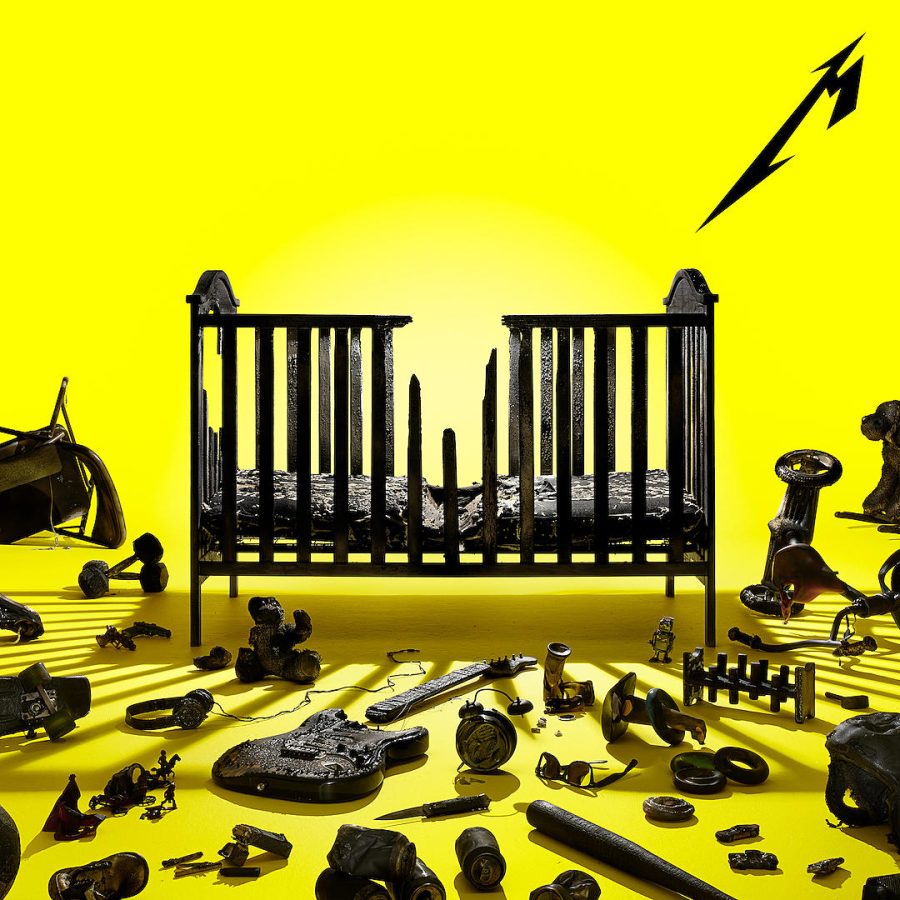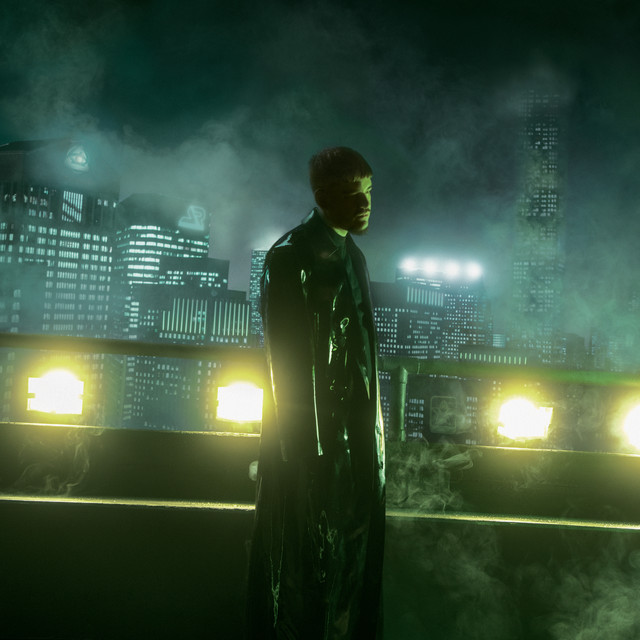On April 14th, Metallica released their 11th studio album, 72 Seasons. This collection has been their most recent studio album since the release of 2016 Hardwired… To Self-Destruct. While I was undeniably excited about the album release, I was also a bit worried.
Fans of the band have been a bit divided on the last two studio albums, the aforementioned Hardwired album and Death Magnetic (2008). Although, these albums acted as a bit of a return to form for Metallica, steering them away from the hard-rock/alternative rock sound of the ‘90s, and bringing them back to their more aggressive metal sound of the ‘80s.
Despite this returning to its roots, modern Metallica is still very different from its ’80s counterpart, with fans and critics pointing out that the difference from previous work is the overproduced sound of their recent albums. In my opinion, the main reason for the difference in sound is the concentration on vocals instead of instrumentation in the newer ones, an example of this is going from the 1988 title track, “…And Justice For All”, a nearly ten-minute-long epic where two-thirds of the song is instrumental and choc full of instrumental breaks, to the Hardwired title track, which clocks in a little over three minutes.
The song “Hardwired” only has one instrumental break, and a very short one at that, making it more radio-friendly than their earlier songs. When the first single dropped, titled “Lux Æterna”, Latin for eternal light, this concern reappeared when I saw it was another, shorter song. On my first listen, I was pleasantly surprised by its fast, upbeat driving feeling. Its main riff reminded me of 1983 “Hit The Lights”, a semi-simple tune that played fastly and used well, with the biggest surprise being that it had a solid drum part.
Drums are one thing Metallica has had very little of, opting for basic drums to accentuate the guitar parts more. The song reminded me of one of Metallica’s early influences, Motörhead, with simple riffs, especially the drum part, later realizing that the drum part is very similar to Motörhead’s 1979 song, “Overkill.” While this single surprised me happily on many fronts, there is one thing I did not like about it. The guitar solo in it felt very lackluster. While their lead guitarist is undeniably great, this solo feels slightly shoehorned into the track because it comes out of nowhere without any buildup and does not seem to fit the overall feel of this song well.
Then, a month later, on January 20th, the second single for 72 Seasons was released, “Screaming Suicide.” This song did not have as good of a drum line, instead reverting to the usual style of Metallica drumming. I cannot say I was not disappointed to see that the stable drumming part was a one-time deal, but I still enjoyed the song. It is a slower song than the fast, no-brakes feeling of “Lux Æterna,” but still, a fun, good song.
Although some things, like the drumming, changed, the one thing that did not alter was the guitar solo. It felt shoehorned again, much like Æterna. However, this song had something more to say; this one addresses the reality and taboo nature of suicide, as rhythm guitarist, vocalist, and songwriter James Hetfield wrote in an interview, “Screaming Suicide” addresses the taboo word of suicide. He explained, “The intention is to communicate about the darkness we feel inside. It is ridiculous to think we should deny that we have these thoughts. At one point or another, I believe most people have thought about it.”
This deep song was later followed up by “If Darkness Had A Son,” the third single, released on March 1st of this year, with a length of six minutes and 36 seconds. This song debuted uniquely, being revealed on the social media platform TikTok, by having one member play their part a day, and then each day adding a new piece onto the song, making the complete intro the day it came out. This song is again unimpressive with its drum work, with a slower but catchy riff, but I think this one could be better if it were faster and condensed. Since this song can feel like a drag sometimes, with the same thing going on and on, it can feel like a chore. Luckily, this song has a good guitar solo and is one of my favorite vocal parts of the album.
Then, on March 30th, the final single was released, and it was the title track, “72 Seasons.” I was surprised that this song was released as a single because I thought it would come along with the rest as the title track. Before I heard it, I had high expectations for this song, as Metallica has a known record for their title tracks, such as “Ride The Lightning” or “…And Justice For All.” This song is the best among the singles with a good guitar solo, good vocals, awesome main riff, and not too short, not too long, about seven and a half minutes long.
When the album finally came out on April 14th, my expectations were everywhere because of the singles. Some of them left me disappointed, and some made me want more. After listening to it, I can confidently say this is probably the best ‘Tallica record since probably the ReLoad album, or maybe even their self-titled ‘Black Album.’ It may be a flop, depending on who you ask. The album has a decent guitar tone and production, but again, not as good as the old Metallica days. I do not think anything they could put out now could reach the greatness of the older records. I liked the tone more than the past three studio albums. It is not great, but it has a powerful sharpness, working well with some songs but some less than favorably– especially the singles I feel could be improved upon with a different tone.
On this album, I also feel that some songs were focused more song-writing-wise, and some were left in the cold, not getting much attention lyrically. An example of this is the first single of the album, “Lux Æterna”, versus something such as the monstrous 11-minute “Inamorata” or the masterful storytelling song, “Room Of Mirrors.” You can see the flaws in the afore track, not giving much of anything to think about lyrically, which is not always bad, but it makes the record feel weirdly unbalanced.
Fortunately, this album lacks filler tracks, as each song gives the listener something to enjoy. Its predecessors, Hardwired… to Self-Destruct, Death Magnetic, and St. Anger, each of the mentioned early 2000s era albums has at least a few filler songs, especially Hardwired, having about four of them.
The songs that stuck out to me were “Inamorata” and “You Must Burn!” “Inamorata” stuck out to me because it has a dynamic with both the lyrics and instrument writing, and the intriguing theme of divorce, a sort of love-hate dynamic to it, that the instrumentals of it also reflect and is something that I think lacking in this album, as multiple songs seem to sort of just blend and just get lost sometimes. They are not as unique as possible as they all seem to have accepted the modern Metallica formula, which is: taking a riff and then slapping together a verse, chorus, verse, chorus, bridge, solo, verse, chorus, in that order. The other song mentioned, “You Must Burn!” is another one I think stands out for its uniqueness, being a slow, heavy song, with some parts feeling very eerie, which feels executed on this track.
Overall, I like this album, and despite its flaws of being repetitive sometimes, it is a good, fun album to listen to. The best songs on it, in my opinion, are “72 Seasons”, “Room Of Mirrors “Inamorata”, “Lux Æterna”, and “You Must Burn!”. The vocals on the album are some of the best they have been in a while. It has deep, vulnerable lyrics, which are very good, especially for a Metallica album. However, the instrumentation is lacking a bit in the whole thing. I recommend listening to this album if you want to turn your brain off and listen to music. Although it is not the best, 72 Seasons is not bad and worth a listen, with some excellent songs mixed with the occasional bland one.






















